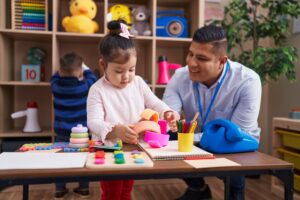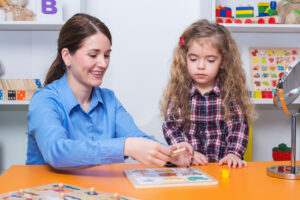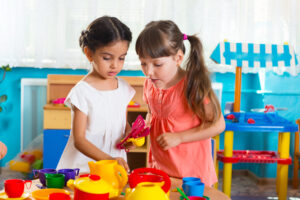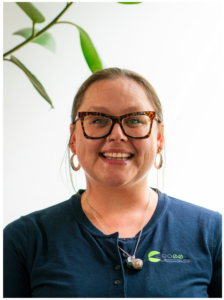Helping Your Child Get Ready in Term 4 for Big Changes in 2026

It’s that time of year again- where next year is looming! For some of our families, this means BIG changes like starting kindy, prep or high school. It can also mean that there are holidays looming where the routine is different and not consistent.
There might be trips and holidays to new places with new people- all of these can create challenges for children (and adults!) and being prepared or thinking about these changes can help with these big life moments.
For our neurodiverse population, change can present a number of increased challenges and supporting each individual person will be different. Here are some general tips and information to help with big changes.
Why It’s Important to Support Children with Unique Needs Before Big Changes
1. Change can feel big and scary
Some children need more time to get used to new things. This includes new people, new places, new routines, or even new clothes (like a school uniform).
Children with communication, learning, or sensory differences may not be able to say what they’re feeling or ask questions to help them understand the change.
Helping them early gives them more time to learn, feel safe, and feel calm.
2. Their brain might process things differently
Neurodivergent children (like those with autism, ADHD, or intellectual disability) often think and learn in a different but still meaningful way.
They might:
- Need more repetition and routine
- Get overwhelmed by noise, lights or crowds
- Struggle to understand time (e.g. what “next week” means)
- Find it hard to plan or switch between tasks
Planning ahead gives them a clear picture of what to expect, and builds confidence.
3. They may need tools to help them cope
Some children need extra help with:
- Understanding (e.g. using pictures or simple steps)
- Expressing how they feel (e.g. pointing, signing, or using AAC)
- Regulating their body or emotions (e.g. sensory tools or breaks)
When we support these needs before a big change, children can learn what works best before they feel stressed.
4. They want to feel safe and successful too
All children want to feel:
- Loved
- Included
- Capable

Neurodivergent children may sometimes be misunderstood. They may be told they’re “naughty” when really they’re just overwhelmed, scared, or confused.
Helping early builds a child’s self-esteem and helps them feel that they belong.
5. Families feel more confident too
When parents and carers prepare early:
- They can learn what support their child needs
- They can meet the school or kindy team ahead of time
- They can teach others about how their child communicates and learns
This makes the whole family feel more supported and connected.
Overall, big transitions can be hard. With the right support, every child can thrive. If you see Speech Pathologists, Occupational Therapists, Psychologists or other professionals, get them on board with these big changes. Neurodivergent children or children with differences just need more time, tools and trust to succeed.
Starting to prepare for transitions and change ahead of time can allow them to fell calm, ready and safe when 2026 is here. It also gives them time to ask questions, seek more information and understand the change.
 Why Term 4 preparation helps
Why Term 4 preparation helps
In Term 4, you can gently guide your child toward new routines and exciting changes ahead—whether it’s starting kindy, school or daycare in 2026. With a bit of planning and support, your child will feel calmer, safer, and more prepared.
Use a calendar or visual schedule
- Create a family calendar (on the fridge or a large wall calendar—or a digital version) showing Term 4 and early 2026 events. (Cooee Speech Pathology)
- Use pictures, stickers, colour‑coding or visual icons so your child can point to what’s coming. This is especially helpful for children who are neurodivergent. (Cooee Speech Pathology)
- Review the calendar together regularly: naming days, saying “tomorrow we will…”, “in two weeks it’s your first day of school.” This builds understanding of time. (Cooee Speech Pathology)
Talk about what will happen
- Have everyday conversations about Term 4 events and next year’s big changes: visits to the new setting, what to expect, who they’ll meet. This reduces anxiety. (Cooee Speech Pathology)
- Use role‑play or social stories: practice greetings, sharing, routines in the new setting. It builds confidence before the real day. (Cooee Speech Pathology)
Build emotion‑and‑regulation tools
- Teach simple calming tools—deep breaths, squeezing a stress ball, or body input for sensory support. Practice when your child is calm so they can use them later when nervous. (Cooee Speech Pathology)
- Keep a “feel‑okay” plan: a safe space with sensory toys or a quiet corner if they need to take a break. (Cooee Speech Pathology)
Support following multi‑step routines
- Use clear, short instructions. For example: “First pack your bag. Then put shoes on.” Visual cues help your child follow the plan. (Cooee Speech Pathology)
- Practice these in Term 4—packing a school bag, lunch, or tidying up—to build skills before 2026. (Cooee Speech Pathology)

Involve your child and celebrate
- Let your child help mark days on the calendar or choose photos and stickers. This builds ownership and excitement. (Cooee Speech Pathology)
- Celebrate each completed week or milestone with praise or a small reward to reinforce the steps. (Cooee Speech Pathology)
Information Sheet: Term 4 2025 Planning for Transition into 2026
| Area | What to Do in Term 4 | Why It Helps (Especially for Neurodiverse Children) |
| Family Calendar / Visual Schedule |
Use a visible calendar showing Term 4 and early 2026 events. Add pictures, icons or stickers. |
Helps your child see and touch what’s coming. Creates predictability and belonging. (Cooee Speech Pathology) |
| Talking & Planning |
Discuss new places, routines, people they’ll meet. Use social stories or role‑play (e.g. “say hello”, “wait in line”). |
Reduces worry by explaining and practicing in a safe space. (Cooee Speech Pathology) |
| Regulation Strategies |
Teach breathing techniques (like box breathing or “dragon breaths”). Provide sensory tools: fidget, pressure input, quiet corner. |
Gives tools your child can use when overwhelmed or anxious. (Cooee Speech Pathology) |
| Structured Routines |
Practice multi‑step tasks: packing bag, choosing clothes, morning routine; use visuals or gestures. |
Builds executive function (planning, sequencing) before the change. (Cooee Speech Pathology) |
| Child Involvement & Choice |
Let them choose stickers or colour codes. Mark progress. Celebrate small wins. |
Increases motivation, belonging and sense of control. (Cooee Speech Pathology) |
| Language & Time Talk |
Use phrases like “today”, “tomorrow”, “in two weeks.” Ask “how many days till…” Encourage describing past/future events. |
Builds time awareness, narrative ability, sense of anticipation. (Cooee Speech Pathology) |
By using visual tools like calendars, talking openly about the upcoming changes, building routines, and teaching calming strategies, families can support children—especially those who are neurodivergent—to feel safe, connected, and confident as they prepare for big transitions in 2026. Term 4 is the perfect time to gently build these skills in a supportive, predictable way.

Written by Speech Pathologist Libby Hall, August 2025
